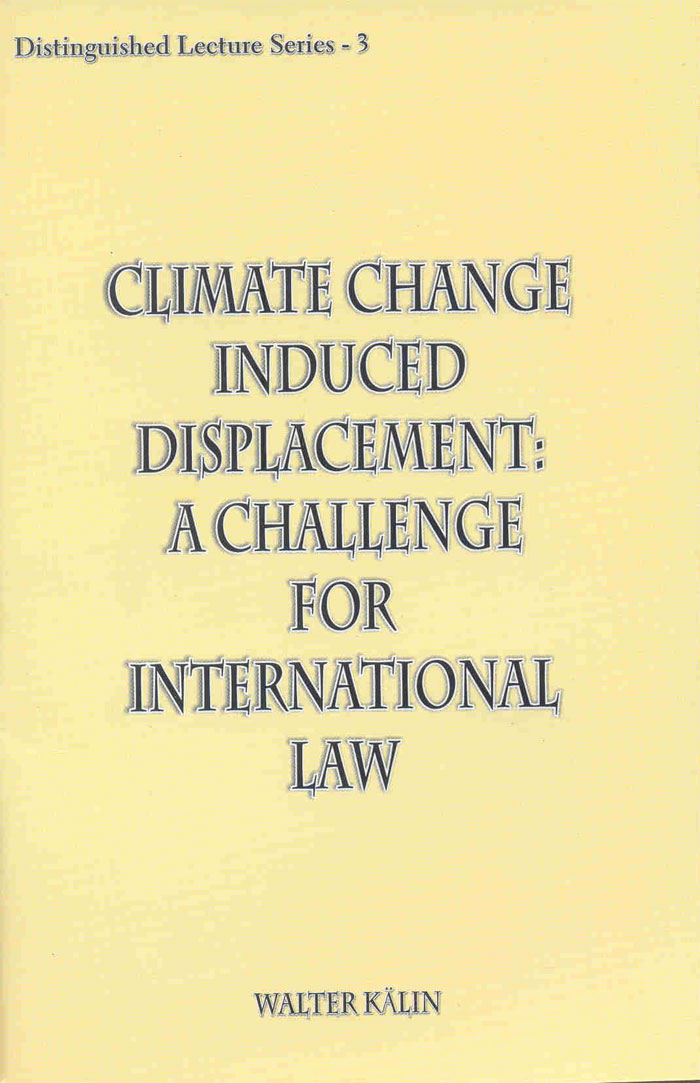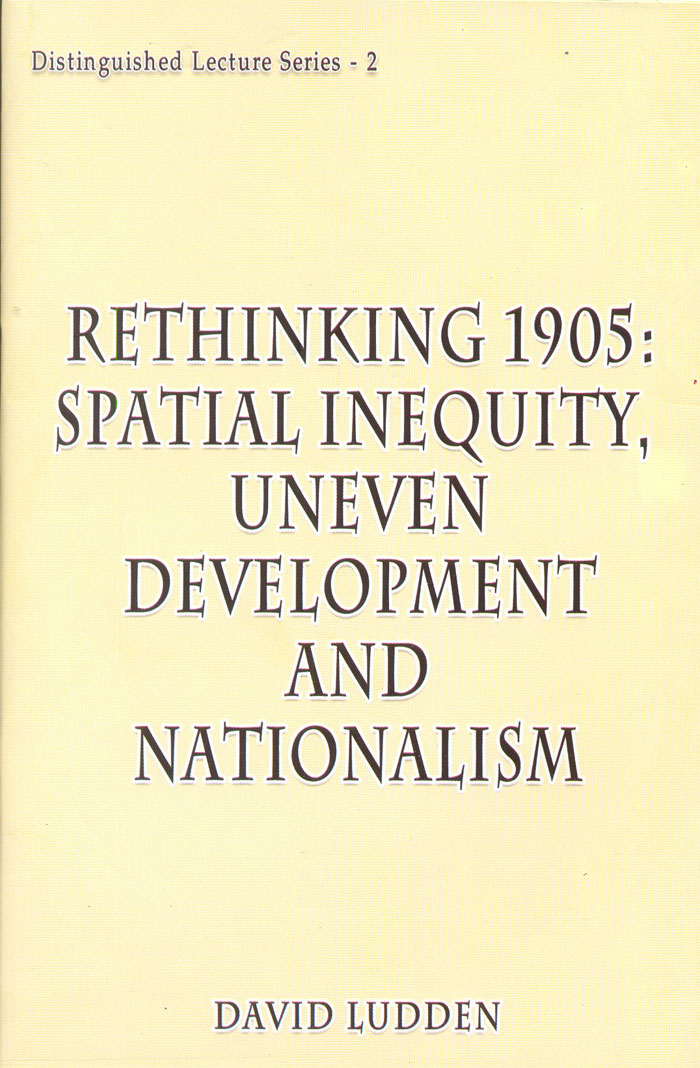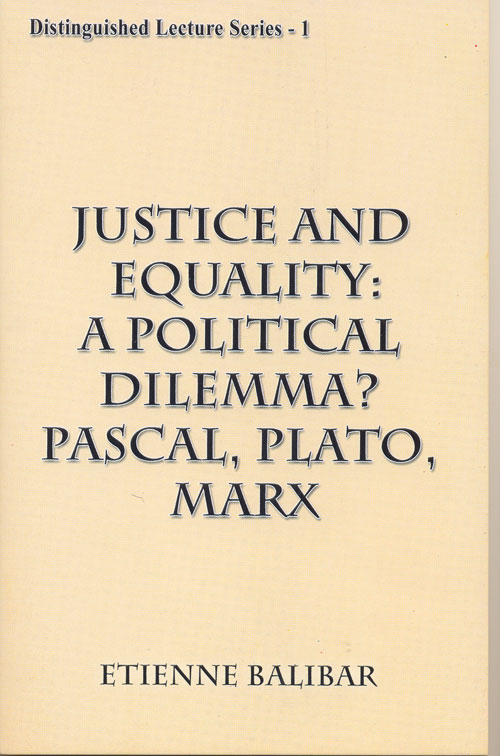|
Climate Change Induced Displacement : A
Challenge for International Law (Distinguished
Lecture Series-3, 2010)
In the lecture, “Climate Change Induced Displacement: A Challenge For
International Law”, Professor Walter Kalin begins with a description of
three distinct sets of obligations States are confronted with under
international law. He then looks at the different scenarios that may trigger
displacement as a consequence of the effects of climate change. This is
followed by a discussion of existing normative frameworks to protect persons
displaced by effects of climate change and the gaps that exist in this
regard. He ends with some remarks on the way forward and a word of caution.
To procure the book, please contact Mahanirban Calcutta Research Group (MCRG) /
Authored by Walter Kaelin |
|
 |
|
Rethinking 1905 : Spatial Inequity, Uneven
Development and Nationalism
(Distinguished Lecture Series-2,
2009)
In his public lecture David Ludden put stress
on India’s territorial nationalism that constructed Indian national space.
He intended to analyze how this space was partitioned in 1947, producing
Indian national territory and leaving a cultural residue. He specified that
space as national space that spills over India’s official borders. In his
lecture he sought to step out of the national framing of human space to
consider another kind of space, physically formed by the Meghna and
Brahmaputra river basins, which he termed as ‘a space without history’. He
argued that, it only acquired a special name for six years after 1905, as
the Province of Eastern Bengal and Assam. In his lecture he tried to analyze
how nationalism and independent national states have continued ever since to
produce and reinforce special inequalities under uneven capitalist
development, in the name of national culture, integrity, sovereignty,
defense, survival, and development.
To procure the book, please contact Mahanirban Calcutta Research Group (MCRG) /
Authored by
David Ludden
|
|
 |
|
Justice
and Equality: A Political Dilemma? Pascal, Plato, Marx (Distinguished Lecture Series-1,
2007)
Prof. Etienne Balibar delivered the first lecture
of the Distinguished Lecture Series on ‘
Justice
and Equality: A Political Dilemma? Pascal, Plato, Marx’ on 21 September 2007 .
Etienne Balibar in this lecture does not defend the idea that we should
chose between the values designated by the names “justice” and “equality”
which to him are inseparable. But he wants draw attention to the fact that
their articulation remains theoretically and practically problematic, and
the tighter the relationship we establish among them, which results in a
definition of each term through the mediation of the other, the more
complicated becomes the case. He also wants to suggest that inherent in this
conceptual riddle is a methodological question which is not deprived of
contemporary relevance, even if it may appear rather academic in its
formulation, namely which point of view should have primacy: moral
philosophy (to which the idea of justice remains traditionally and
dominantly attached) or political philosophy (whose modern language
has been crucially framed around the claim of equality among citizens,
albeit in a typical association with the claim of liberty, as we will have
to remember). This is where the form of a dilemma could possibly emerge. The
dilemma can also appear around the issue of social equality - equality among
groups in the broad sense and not only individuals - the typical conflicts
between opposite conceptions of justice become inescapable, which means that
justice appears now as a fully political and not only a moral issue. The
idea of the political thus becomes at the same time intensified and
complicated, even destabilized, by any deep investigation of the tensions,
choices, and antinomies involved in the association of justice with
equality. It has to take into account its internal other, of which perhaps
the “moral” issues are only a symptom and an index, which together with
several contemporary philosophers Balibar wishes to call the “impolitical”
(rather than unpolitical) side of politics. This lecture carries
philosophical investigations in this perspective.
To procure the book, please contact Mahanirban Calcutta Research Group (MCRG) /
Authored by
Etienne Balibar
|
|
 |

